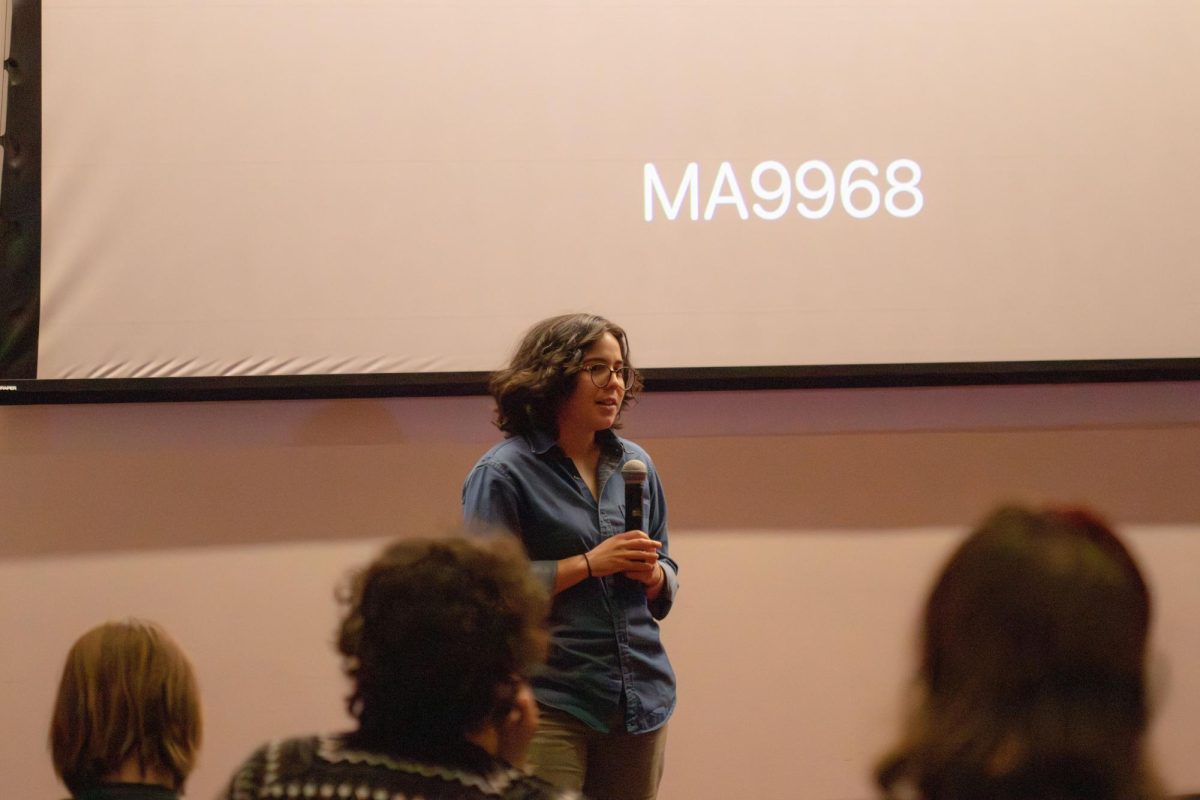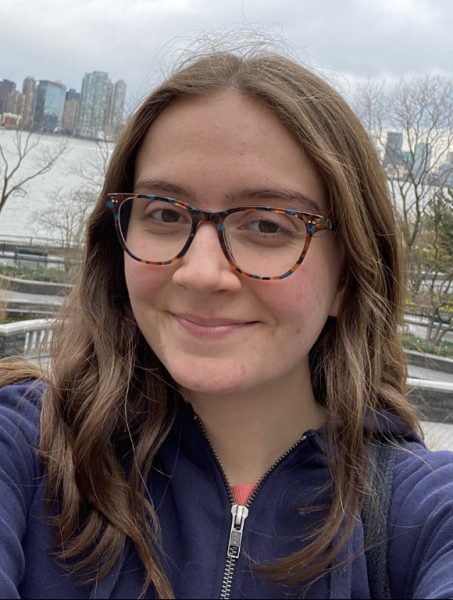Experimental filmmaker Michelle Trujillo said her craft starts with the stories both behind her, from ancestral histories, and ahead of her, in what will happen after her. Originally from South Florida, Trujillo developed her creative practice through the Midwest landscape in Milwaukee, Wis., which inspired Nicky Tavares, assistant professor and department chair of film and media studies, to invite Trujillo to Grinnell.
This past Monday, Feb. 26, the Film Society, in collaboration with Trujillo, hosted an artist’s talk and workshop for film students along with screenings of five of Trujillo’s short films and a 12-minute excerpt of her work-in-progress feature-length film, “1511,” about the house she grew up in and her family’s migrations.
Tavares first learned of Trujillo and her work through GAZE, an international LGBTQ+ film festival that highlights women, transgender, non-binary and queer artists. Trujillo’s craft explores different representations of Latinx culture through folklore, histories and personal experience with a focus on gender and identity creation. Tavares said she thought Trujillo’s experimental lens was “perfect for the liberal arts.”
In her artist talk, Trujillo described South Florida as a “cultural collision” of Latin and American life which defined how she saw the world. She said she has been living on the borderland of the two worlds, and her video work in Spanish, English and “Spanglish” — a “constantly evolving hot tongue on the border of understanding” for those searching for home — represents the fluidity and dichotomy of her lived experience. She said she sees her life and work as a “series of arrivals” dating back to when her mother and father first arrived in the United States from Costa Rica and Columbia, respectively.
Many of her films are thus connected through thematic elements of disorientation as a way of challenging the status quo and fluidity between mediums or iterations of the self.
“I’ve always been very attracted to creating images and then working with film itself,” she said. “I really enjoy working with a physical medium, so in having that kind of mundane, running through frame-by-frame, there is something really nice and meditative about that that I really appreciate.”
Students who attended the artist talk and film screening had the opportunity to ask Trujillo questions about her life and her creative process. She discussed some of her own film techniques, such as positive and negative reversal — processing an image so that part of the film is positive and part is negative — painting and scratching on film and eco processing, which uses natural developers for the film rather than unsustainable chemicals. She also mentioned she accidentally discovered the solarization technique — exposing film to light during the developmental process — when she was impatient as her film developed.
Mistakes can be your greatest teachers,” she said.
Mistakes can be your greatest teachers.
— Michelle Trujillo, experimental filmmaker
Trujillo also talked about some of the artists who inspire her work, including queer, feminist scholars such as Gloria Anzaldúa and Sara Ahmed as well as experimental filmmakers such as Maya Deren and Dinorah de Jesús Rodriguez. Trujillo recommended that Grinnell College film students watch more experimental films and encouraged them to reflect on films they have seen recently that have inspired them.
During the Q&A session following the film screening, one student asked Trujillo how she decided to use one film method over the other, since most of her films are a conglomeration of multiple different styles and techniques. Laughingly, Trujillo said, “I’m kinda out of control, right?”
Answering why she uses so many different techniques in her work, Trujillo said, “I’m a big collector, so I very often have my camera with me. When there are images or moments that draw me in, I record them, and I archive them. I feel like when I start to have an idea, those small moments or those images start to become magnetized, and I feel like they find each other.”
I am interested in creating something that other people with a similar experience could connect to and maybe feel seen through.
— Michelle Trujillo, experimental filmmaker
Situated in rural Iowa, the Film Society aims to bring filmmakers to Grinnell since students have limited access to film culture in the town, according to Tavares.
“One of the main challenges Grinnell students have is finding their own creative voice in the prairie landscape,” Tavares said, especially if Grinnell’s landscape is different from the one students call home.
As such, Trujillo recommended that students film and photograph anything they find interesting or inspiring so as to create a collection of images that can be brought together for future projects.
“I make films for a lot of different reasons,” Trujillo said. “I think that it’s my way of processing the world around me. I am interested in maybe leaving some sort of mark that I was in the world, too. I am interested in creating something that other people with a similar experience could connect to and maybe feel seen through.”































































